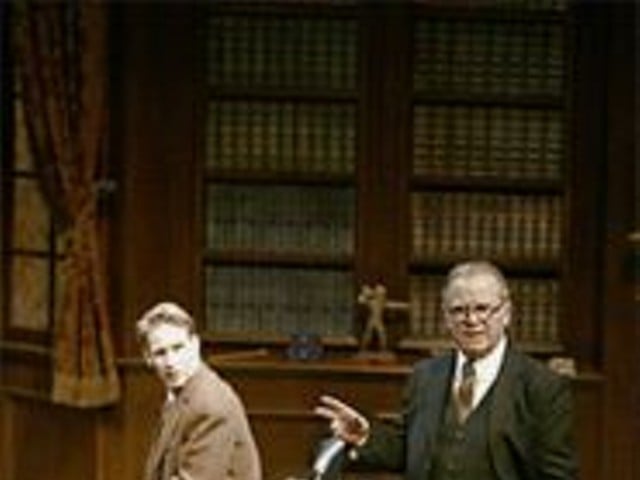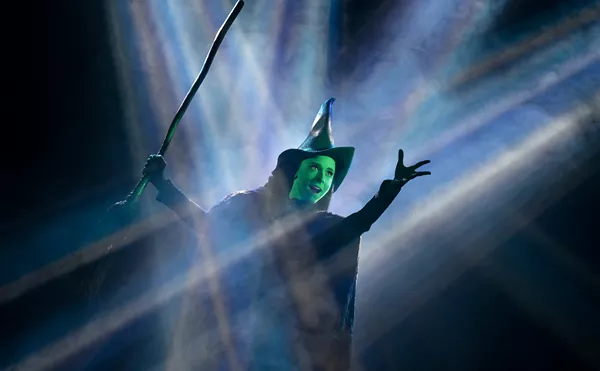Trimming would only help. As the eminent New York Times theater critic (and O'Neill devotee) Brooks Atkinson put it, "The [play's] theme was not so profound, original and intricate that it could not have been dramatized in half that time." O'Neill himself understood that changing times call for an altered approach to storytelling. He once wrote that John Ford's movie The Long Voyage Home, which is based on four O'Neill one-act plays, was the best of all the film adaptations of his plays. Why? Because Ford found ways to cut the dialogue and tell the story visually. It's the underlying themes of O'Neill's plays that can still reach out to viewers, not every single comma and prepositional phrase. Perhaps we should all be glad that Shakespeare is in the public domain; if producers were required to stage the Bard uncut, his popularity would plummet.
So it is that Hydeware is stuck having to stage this absurdly long evening. Which is a shame, because Hydeware likes to have fun with theater. They brought sod to the top floor of a Washington Avenue co-op for a production of Edward Albee's Zoo Story, and last year they mounted an effervescent Poona the Fuckdog. Here they've sought to instill life into a moribund evening by inviting viewers to sit at separate tables alongside the drunken derelicts who inhabit Harry Hope's seedy saloon. But it's an essentially futile gesture, because this production has more going against it than just length.
Throughout its history Hydeware has been a vagabond troupe, roaming from venue to venue. Last year they seemed well suited in the scrubby Soulard Theatre, but now that home is gone. Iceman is being staged in the antiseptic concrete bunker at the Regional Arts Commission, a space that might work for children's theater or the shenanigans of Magic Smoking Monkey but which is unsuitable here. Much of the dialogue is swallowed by poor acoustics; still more is smothered by the drone of an unrelenting air blower. You don't have to be sitting on the set to feel as if you're in the saloon. Because you're only hearing a fraction of what's being said onstage, of necessity you become an eavesdropper straining to listen in on that conversation at the next table. Yet because O'Neill's script is so repetitive, despite the fact that you're missing huge hunks of dialogue, you don't miss all that much of the plot.
The entire cast is to be commended for acting under such restrictive circumstances. But the sad irony is that the louder the voice, the more indecipherable it becomes. Hence, what appear to be some of the more impressive performances — Robert A. Mitchell as the weary former anarchist Larry Slade, Ken Haller as bluff barkeep Harry Hope — are among the most difficult to understand. What linger longest are the visuals: Richard Strelinger's bartender takes a swig of bottled rotgut with such violence, you can feel the self-loathing.
There's no denying that The Iceman Cometh, which is based on O'Neill's raffish memories of his pre-playwright days as a waterfront bum, is one of the American theater's most influential plays. The desperate pipe dreams that are espoused here provide the antecedents for other stark scripts that seek to separate truth and illusion. Edward Albee's Who's Afraid of Virginia Woolf? is but one American masterwork that owes its very existence to The Iceman Cometh.
But there's a profound difference between being influential and being involving. If those who are entrusted to watch over O'Neill's reputation insist on tarnishing that reputation through overkill, what's a viewer to do? Stay home?





